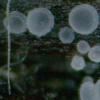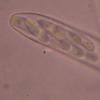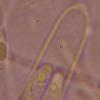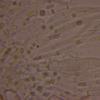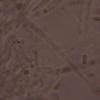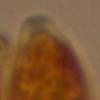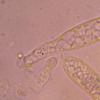
07-02-2023 22:28
Ethan CrensonHello friends, On Sunday, in the southern part of

19-02-2026 17:49
Salvador Emilio JoseHola buenas tardes!! Necesito ayuda para la ident

19-02-2026 13:50
Margot en Geert VullingsWe found this collection on deciduous wood on 7-2-

16-02-2026 21:25
 Andreas Millinger
Andreas Millinger
Good evening,failed to find an idea for this fungu

08-12-2025 17:37
 Lothar Krieglsteiner
Lothar Krieglsteiner
20.6.25, on branch of Abies infected and thickened

17-02-2026 17:26
 Nicolas Suberbielle
Nicolas Suberbielle
Bonjour à tous, Je recherche cette publication :
Hyaloscypha sur Betula alba
Luc Bailly,
22-04-2009 15:29
Une récolte faisant partie d'un inventaire d'une tourbière en réserve naturelle. (RND Fagne de la Crépale à Lierneux, Prov. LG, Belgique).
En colonies denses. Sur bois pourri de Betula alba ( "pubescens" ), dans la sphaigne d'une source forestière acide, 20.04.09
Apothécies poilues, sessiles, blanches, translucides, presque hyalines, de l'ordre de 0.1-0.2 mm.
Obs. dans l'eau: Asques à spores bisériées, p.ex. 55X9 µ; spores 9.5-12 x 3-4 µ. Paraphyses cylindriques, lisses, x 2-3 µ. Poils peu visibles, lisses à première vue, hyalins, x 2µ à la base, x 1µ vers le sommet, peu nombreux.
Tout cela n'est pas loin de Hyaloscypha hyalina, qui pousse sur Quercus, mais les asques et les spores sont plus grandes.
Une idée?
Luc Bailly,
22-04-2009 15:32
Hans-Otto Baral,
22-04-2009 17:38

Re:Hyaloscypha sur Betula alba
Dear Luc
very good that you made photos in the living state, this makes it much easier.
Three questions: (1) I cannot see the iKI reaction of the ascus. It is better to view it in a dead ascus with expanded apical wall. (2) Please have a look at the ascus base (croziers). (3) The hair on your photo is too unsharp, I assume it attenuates towards the tip.
Wonderful are the refractive drops in the paraphyses. These are no vacuoles but SCBs, and they are very typical of Hyaloscypha albohyalina var. albohyalina but absent in var. spiralis. Hyaloscypha hyalina is a nomen dubium since no type material exists (see Huhtinen's 1990c monograph).
Zotto
very good that you made photos in the living state, this makes it much easier.
Three questions: (1) I cannot see the iKI reaction of the ascus. It is better to view it in a dead ascus with expanded apical wall. (2) Please have a look at the ascus base (croziers). (3) The hair on your photo is too unsharp, I assume it attenuates towards the tip.
Wonderful are the refractive drops in the paraphyses. These are no vacuoles but SCBs, and they are very typical of Hyaloscypha albohyalina var. albohyalina but absent in var. spiralis. Hyaloscypha hyalina is a nomen dubium since no type material exists (see Huhtinen's 1990c monograph).
Zotto
Luc Bailly,
22-04-2009 22:04
Re:Hyaloscypha sur Betula alba
Hi Zotto, many thanks for your reply and the label Hyaloscypha albohyalina var. albohyalina for my specimen.
1- The IKI reaction is better in an immature ascus, see photo below. Clearer when directly observing than in photos (I must refine my photos techniques).
2- I don't remember seeing croziers, but I still have the specimen, it's not drying for the herbary yet. I'll check again.
3- Yes, the hairs dinstinctly attenuate toward the tip.
Regards - Luc.
1- The IKI reaction is better in an immature ascus, see photo below. Clearer when directly observing than in photos (I must refine my photos techniques).
2- I don't remember seeing croziers, but I still have the specimen, it's not drying for the herbary yet. I'll check again.
3- Yes, the hairs dinstinctly attenuate toward the tip.
Regards - Luc.
Hans-Otto Baral,
22-04-2009 22:19

Re:Hyaloscypha sur Betula alba
O.k., that's fine. To see the croziers it is best to make a section and to look in vital state in water. The n you usually see them immediately. Perhaps you see also the hairs better.
zotto
zotto
Luc Bailly,
23-04-2009 00:04
Hans-Otto Baral,
23-04-2009 18:35

Re:Hyaloscypha sur Betula alba
yes, clearly a crozier. So H. var. albohyalina is sure. (var. spiralis is without croziers).
Zotto
Zotto

